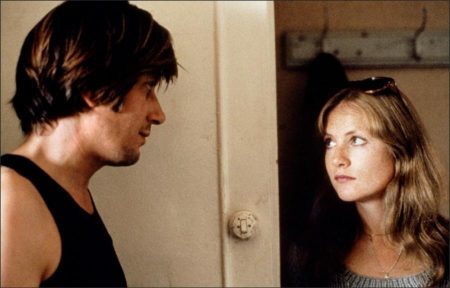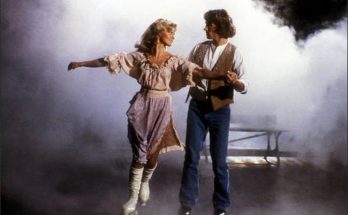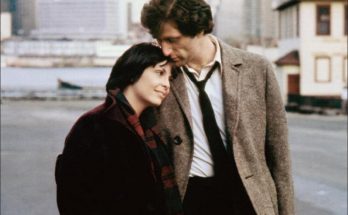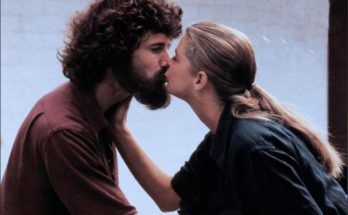An examination of sexual relationships, in which three protagonists interact in different combinations.
Every Man for Himself (French: Sauve qui peut (la vie)) is a film directed, co-written and co-produced by Jean-Luc Godard. The film stars Jacques Dutronc, Isabelle Huppert, and Nathalie Baye, and the score is by Gabriel Yared. It was filmed in Switzerland. The film premiered at the 1980 Cannes Film Festival, and went on to garner 620,147 admissions in France. The film was also selected as the Swiss entry for the Best Foreign Language Film at the 53rd Academy Awards, but was not accepted as a nominee.
About the Story
The film is divided into three main sections, each focusing on one of the three main characters. A prologue introduces Paul Godard, a filmmaker, and his estranged girlfriend, Denise Rimbaud. After Paul leaves the deluxe Swiss hotel where he is staying and rebuffs the sexual advances of a male hotel attendant, the film shifts to its first proper section, “The Imaginary,” and follows Denise as she makes arrangements to work at the newspaper run by an old friend, or perhaps an old lover, in the Swiss countryside.
Denise is struggling with her choice of giving up the apartment she shares with Paul and leaving her job at a television station, where Paul also works. She is also trying to begin a new project, possibly a novel. In the course of her arrangements, including securing a room at a farm in the countryside, Denise realizes she is late to pick up the author and filmmaker Marguerite Duras, and telephones Paul to ask if he can do it for her. Despite being put off by Denise’s intention to leave him and their apartment, he agrees.
The second section, “Fear,” focuses on Paul. After picking up his daughter Cécile from soccer practice (where Paul, seemingly apropos of nothing, asks the soccer coach if he has ever felt like feeling up his own daughter or “fucking her up the ass”) the filmmaker fulfills his favor to Denise by picking up Marguerite Duras from a local college. Duras is on campus but will not come into the classroom to speak (though her recorded voice appears on the soundtrack, Duras does not appear in the film).
Urged to speak in her place, Paul reads a quote from the author in which she says that she only makes films because she lacks the courage to do nothing. Paul says this is true for himself as well. Arriving at the television station, Paul finds Denise furious that he has not brought Duras with him for a scheduled interview, having honored her wish to take an early flight back to France. Later at dinner, Paul faces an ex-wife that seems only to want her monthly check and a daughter that demands her birthday gift. After once again expressing his alienation with inappropriate sexual innuendo, Paul leaves and meets Denise at a bar, where the two end up quarreling over their relationship. At the end of the evening, Paul meets Isabelle, a prostitute, and takes her home.
Part three, “Commerce,” is Isabelle’s section. After her night with Paul (during which she mechanically goes through the motions while mentally planning her next day), Isabelle is waylaid by a pimp who physically intimidates her to try to get a percentage of her earnings. Isabelle returns to the apartment she shares with roommates, who all seem to detest her.
Her sister arrives unexpectedly and asks Isabelle for money but Isabelle declines to give it to her, saying instead that she will help her sister turn tricks for a few weeks in exchange for a percentage of her earnings. As she continues to service clients (all the while performing her labor while her mind is elsewhere), Isabelle searches for her own apartment through an agency. She pretends to be a client’s daughter in an incestuous fantasy scene, then visits her final client of the day, a businessman who concocts a pornographic assembly line of sexual activity that includes Isabelle, another prostitute, and one of the businessman’s employees.
The next morning Isabelle goes to see about an apartment, which turns out to be the one that Denise has shared with Paul. Paul “has an idea” in the moment to physically wrestle with Denise as a way to break through the gulf that separates them, but it comes to nothing and Denise and Isabelle end up bonding instead. In the coda, entitled “Music,” Isabelle seems to prosper in her new apartment and Denise has moved on in life.
After having spent several days adrift, Paul runs into his ex-wife and daughter in the city, and asks plaintively to spend more time with them. Walking backwards away from the two women, Paul accidentally steps in front of a car and is hit. Isabelle’s sister, now apparently a prostitute, flees the scene with the driver, her client. Paul’s ex-wife urges Cécile to leave with her, saying “it’s nothing to do with us.” As Cécile walks away, she passes a small orchestra set up on the street, playing the theme music heard throughout the film.
Every Man for Himself (Sauve qui Peut (La Vie) (1980)
Directed by: Jean-Luc Godard
Starring: Isabelle Huppert, Jacques Dutronc, Nathalie Baye, Roland Amstutz, Cécile Tanner, Anna Baldaccini, Roger Jendly, Nicole Jacquet
Screenplay by: Anne-Marie Miéville, Jean-Claude Carrière
Cinematography by: Renato Berta, William Lubtchansky, Jean-Bernard Menoud
Film Editing by: Jean-Luc Godard, Anne-Marie Miéville
Art Direction by: Romain Goupil
Music by: Gabriel Yared
Distributed by: MK2 Diffusion
Release Date: October 15 1980 (France)
Views: 141





